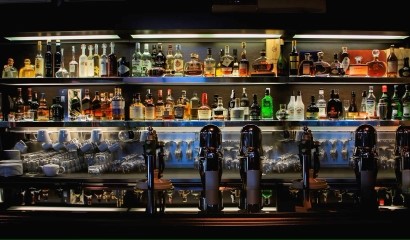First Brands top assets could draw strategics, distressed PE amid balance sheet cleanup
- EBITDA multiples may come below forecast due to balance sheet strains
- Horizon trailer hitch unit seen as the strongest brand
- Dorman, Valeo, Lippert among logical suitors for different segments
First Brands could draw interest from strategic and distressed private equity suitors for select segments, but balance sheet troubles, including billions missing tied to factoring arrangements, are clouding the outlook, said two sector advisors and a private equity executive.
Certain divisions of the bankrupt automotive parts supplier could command mid-single-digit EBITDA multiples, they noted, with Dorman Products, Valeo, Premium Guard, Lippert Components, DexKo, Patrick Industries, and Denso potentially emerging as suitors for the divisions.
The Cleveland, Ohio-based company, long known for its aggressive acquisition strategy, is now facing a valuation challenge as investors struggle to make sense of a portfolio built through serial dealmaking. The company is currently pursuing a sale process while remaining “laser-focused” on operational execution and an off-balance sheet financing investigation, said the company’s interim CEO Charles Moore, last week. Moore replaced First Brands’ founder Patrick James upon his resignation earlier this month.
In August, before First Brands’ Chapter 11 filing, a Lazard-led attempt to market a full or partial sale of the company proved unsuccessful, according to court filings. Two of the five potential buyers that signed nondisclosure agreements to explore a full or partial acquisition later walked away after First Brands’ financial position deteriorated and new information emerged that required a reassessment of its liquidity needs and the feasibility of out-of-court options, according to the filing. The parties, however, “confirmed their continued interest in the company should those challenges be resolved,” the filing said.
The company’s sale process and valuation will be contingent on First Brands’ efforts to right-size its USD 10bn-plus balance sheet and shed liabilities in bankruptcy.
“When First Brands bought these companies, they got the receivables that came with them,” said the PE executive. “But now, they’d be selling the businesses to someone who wouldn’t get that. They’d have to rebuild the balance sheet, which has been stripped,” a process that could be very expensive for a potential buyer.
A source familiar with the situation said that fixing the balance sheet is a fundamental goal for First Brands, noting that it is likely too early in the bankruptcy process to assess how the company will go about either a full or piecemeal sale. He anticipated that the company’s sale process will be wide and comprehensive.
Sticky, household brands
Despite its financial strain, the company still owns several credible brands with loyal, recurring customers, including within its towing and trailer segment Horizon Global, the two sector advisors said, with one noting Horizon holds the top share in that sector. These assets, along with other well-respected First Brands units like Trico, which provides windshield wiper blades, FRAM, a filtration products distributor, and Airtex, which offers fuel pumps, could draw interest from larger market players, the advisors added.
However, any buyers are unlikely to assume legacy obligations, the first advisor cautioned, adding that a breakup would more likely involve asset purchases of brands, equipment, and plants, as well as the staff necessary to run the plants.
FRAM, Horizon, Trico, and Airtex could fetch a 5x-7x EBITDA multiple, as could the company’s Brake Parts business, the advisors and the PE executive estimated.
As vehicle drivers must regularly replace brakes and brake pads, they will continue to be loyal customers of Brake Parts, making it a valuable asset, noted a third sector advisor. Some of First Brands’ products, including its brake components, are “household names, very sticky,” he continued.
First Brands generates roughly a third of its revenue from brake parts, which comprises Cardone, StopTech, and Centric Parts. About 29% comes from vision and lighting brands like Trico and ANCO, while its filtration segment, featuring FRAM, PetroClear, and Jasper Rubber Products, contributes around 14%. The remaining 29% comes from repairs and towing brands such as Airtex, AutoLite, and Carter Fuel, according to court filings.
NASDAQ-listed, Pennsylvania-based Dorman Products and France-based Valeo are logical suitors for both Trico and FRAM, said the first two sector advisors, who added that Trive Capital-backed, Memphis-based filtration products group Premium Guard could also look at FRAM.
Horizon will likely appeal to Lippert Components, an Indiana-based, NYSE-traded towing and trailer hitch equipment provider, said the same two advisors. The first advisor also named Brookfield Business Partners-backed DexKo Global and publicly traded Patrick Industries, both headquartered in Indiana, as logical suitors for Horizon.
Japanese auto components giant Denso could take a look at Airtex, suggested the first advisor.
Private equity firms specializing in turnarounds could consider any of these units, the first two advisors and the PE executive agreed. To properly run the businesses, however, PE firms would need to assemble teams with deep auto parts expertise that strategic buyers already have, the first advisor noted.
One PE with exposure to the sector is Apollo, whose portfolio company Tenneco, a major auto parts supplier, is a direct competitor to First Brands. Apollo previously held a short position in First Brands’ debt.
The PE executive and the first advisor cautioned that First Brands’ reported 2024 adjusted EBITDA for its individual businesses likely excludes costs such as working capital, overhead, and recent failures to collect receivables from some retailers. As a result, buyers would likely offer “two turns less” than what First Brands originally paid for the businesses, they projected.
Known as Crowne Group until its 2020 rebrand, First Brands acquired Trico in 2014 for USD 277m, representing a 7.7x multiple of Trico’s USD 36m LTM EBITDA, according to a recent First Brands presentation. Its 2024 adjusted EBITDA stands at USD 133m.
The company paid close to USD 500m for Brake Parts in 2020, valuing the business at nearly 8x its LTM EBITDA of USD 63m, which climbed to an adjusted 2024 figure of USD 186m. FRAM, along with spark plug distributor AutoLite, sold for USD 306m in 2019, valued at 4.5x its LTM EBITDA of USD 68m, which grew to USD 120m in 2024 adjusted EBITDA.
Horizon Global sold for USD 410m in 2023; its EBITDA at the time was not disclosed, nor was the multiple First Brands paid for it. Horizon reported adjusted 2024 EBITDA of USD 83m.

Steering through a valuation conundrum
A key uncertainty in valuing First Brands is its USD 2.3bn in off-balance-sheet factoring activities, noted Debtwire’s credit analysts in a recent report. Treatment of factoring agreements in bankruptcy is highly case-specific, but sources speaking to Debtwire last month suggested that First Brands’ secured lenders are unlikely to be primed, as the financings sit outside the capital structure. How factoring is treated may also depend on whether it involves current or future receivables, according to a recent report by Debtwire’s legal team. Investors are raising concerns about financial statement quality given the scale of these off-balance-sheet arrangements.
Addressing these concerns, the PE executive said that, when weighing potential valuations for First Brands’ units, “it’s naïve to just look at the EBITDA, [given] the capital required to finance the business.”
The first advisor also expressed skepticism about the cited adjusted 2024 EBITDA figures, saying that suitors are likely to adjust those figures for risk and then offer a lower multiple than expected.
The source familiar with the situation said it is likely premature to determine whether First Brands’ adjusted 2024 EBITDA figures accurately reflect the company’s costs, or how individual segments could be valued in the event of a sale.
First Brands declined to comment.
Potential valuations could also come down due to tariff concerns, as tariffs are putting more strain on companies with low-margin auto products like hitches and brakes, the PE executive added.
In its bankruptcy filing, First Brands stated that, throughout 2024 and 2025, it lost USD 219m from tariffs-related burdens. It was necessary, for instance, for the company to “pre-buy inventory ahead of tariff effectiveness,” and its gross margins decreased by USD 25m because “product prices could [not] be increased [in time] to counteract the effects of tariffs.”
In the same filing, however, it noted that roughly 92% of its total annual imports from Mexico are protected by the United States-Mexico-Canada Agreement, which has “reduced the company’s total exposure to tariffs by approximately USD 285m annually.”
The company generates 75% of its revenue from products sourced in North America, where it has 18 distribution centers and 19 factories, according to court filings. First Brands’ manufacturing capabilities and distribution centers span five continents, including 36 factories and two distribution centers in Mexico, seven factories and four distribution centers in Europe—including in Germany, Italy and Romania—and six factories in Thailand and India.
Beyond First Brands’ bankruptcy struggles and the high probability that even its best segments won’t receive desirable valuations, the PE executive noted it wouldn’t be surprising if its segments attract limited to no buyer interest.
“First Brands was the only buyer” for groups like Horizon, he noted. “If no one [else] wanted windshield wipers or trailers and hitches before, why would they want them now? It’s not like everything got better—[the market] got worse as rates went up.”









